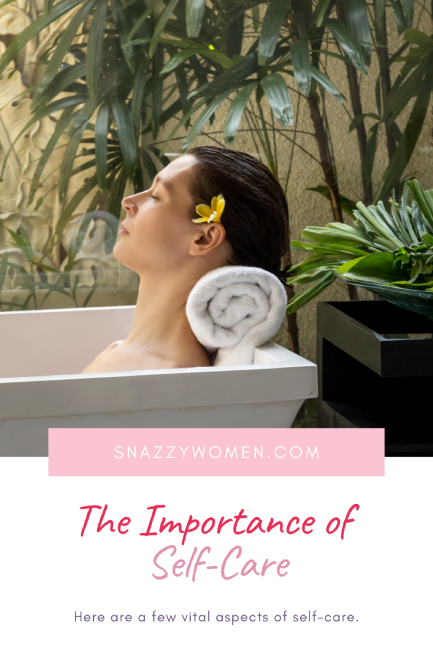It’s a breeze to get caught up in the daily grind in today’s fast-paced and demanding world, frequently forgetting about our own needs and well-being. But caring for our own needs is more important than just being a luxury. Even if you live in a luxurious place, that doesn’t mean life is all sunshine and rainbows. Take California for example- you might think residents of Malibu and Beverly Hills have all the luxury and no worries, right? Well, depression treatment centers in California prove to be necessary as >31.7% of adults in California reported symptoms of anxiety and/or depressive disorder, compared to 32.3% of adults in the U.S.
Our lifestyles place a high value on self-care, the deliberate practice of promoting physical, mental, and emotional wellness. Self-care has never been more critical than it is right now for preserving equilibrium, lowering stress levels, and developing a positive outlook.
Instead of being self-serving, it is a self-loving and survival act. We may traverse life’s difficulties more efficiently, achieve inner peace, and eventually live happier, more meaningful lives by taking the time and effort to care for ourselves.
The value of self-care rests in its capacity to prioritize and nourish our emotional, mental, and physical health. Here are a few vital aspects of self-care:
Physical Wellness
Practicing self-care helps us maintain physical health and energy. The core components of self-care include an appropriate diet, regular exercise, and enough sleep.
Exercise supports a healthy weight, a strong cardiovascular system, and increased physical fitness. Our bodies can heal and regenerate when we get enough sleep, which supports the immune system and cognitive function.
The nutrients required for the body’s optimum functioning and sustained energy come from consuming a balanced diet. By taking good care of our bodies, we increase our energy, lower our chance of developing chronic diseases, and increase our days. If you find that you just can’t seem to be getting the right amount of nutrients, try supplementing with vitamins. Depending on your age, sex, and health, supplements such as women’s multivitamins can aid in helping you to get the right that may be missing from your food.
General Standard of Living
Self-care eventually improves our quality of life as a whole. Our capacity to manage life’s problems, uphold strong relationships, and achieve fulfillment is improved when we put our well-being first.
Caring for ourselves shows that we value our needs and pleasure. Enhanced self-acceptance, self-compassion, and self-love result from this, and it further gives us the capacity to establish healthy boundaries, make decisions in line with our values, and develop a more profound feeling of fulfillment and purpose.
Emotional Endurance
We can nurture our emotional health via self-care. It entails being aware of and attending to our feelings, cultivating self-compassion, and creating effective coping methods.
Emotional self-care includes doing things that make us happy, being grateful, and getting help from friends, family, or specialists. We build self-worth and self-confidence by giving our emotions the attention they deserve.
Our awareness of our emotions increases, enabling us to control and communicate them appropriately. When we put emotional self-care first, we build resilience, strengthen our bonds with others, and create more genuine and empathic connections.
Mental Health
Self-care is essential for maintaining our mental wellness. Taking proactive measures to manage and minimize stress in the current fast-paced and demanding environment is crucial.
We may decompress, reduce stress, and cultivate an inner feeling of peace by engaging in relaxing activities like mindfulness, meditation, or hobbies. We make time for introspection, self-reflection, and self-discovery by implementing self-care routines into our daily lives.
Through this process, we may increase our self-awareness, create a good mentality, and better comprehend our thoughts and feelings. Investing in our mental health better manages problems, increases attention and concentration, and improves cognitive performance.
Keeps Burnout at Bay
Burnout, defined by physical and mental tiredness, is a common problem in today’s high-stress culture. Being self-aware and practicing self-care are effective burnout prevention strategies.
We establish an ideal work-life balance by setting limits, regulating workloads, and taking frequent breaks. Furthermore, we may recharge, regain our vitality, and protect ourselves from the damaging consequences of ongoing stress by practicing self-care.
In addition, when we put self-care first, we can maintain our enthusiasm, devotion, and productivity in our professional and private endeavors.
Efficient self-care routines include actions that put your physical, mental, and emotional well-being first. Here are some self-care practices you should consider:
Practice Physical Activity
Self-care must include regular physical activity. Find things you find enjoyable and meet your interests and degree of fitness. It may be going for a jog or a stroll outside, doing yoga, dancing, swimming, or participating in a sport.
Schedule a specific time to engage in exercise as part of your regimen. If you have a desk job, take small pauses during the day to stretch or perform quick activities to improve circulation and ease muscle stress.
Practice Stress Reduction and Mindfulness
You may take good care of your mental and emotional health by practicing stress reduction and mindfulness. Spend a few minutes every day practicing mindful breathing.
Find a calm, cozy area, relax your eyes, and concentrate on breathing. As you breathe in and out, pay close attention to how it feels. This routine can aid in lowering tension, encouraging relaxation, and enhancing attention.
Participate in stress-relieving hobbies that suit you as well. This practice might involve indulging in relaxing activities such as warm baths, deep breathing exercises, relaxing music, or enjoyable pastimes.
Prioritize Quality Sleep
Getting enough sleep daily should be the primary objective of your self-care regimen. Set up a regular sleeping routine by going to bed and getting up at a specific time each morning, including on the weekends.
This practice encourages deeper sleep by regulating your body’s natural schedule. So establish a relaxing sleep ritual telling your body it’s time to relax.
Ensure your sleeping environment is relaxing, peaceful, and supportive of good sleep. Avoid distractions like gadgets or loud noise by keeping the room dark, chilly, and quiet.
Establish Limits and Practice Saying No
You may preserve your time, energy, and well-being by establishing boundaries and developing the ability to say no. Determine which of your personal and professional obligations and commitments are in line with your objectives and values by taking an inventory of them.
Develop the ability to express your needs to others, to create clear limits with them, and to speak up for yourself. To avoid becoming overwhelmed or exhausted, practice saying no to responsibilities and obligations that do not fit your schedule.
Recognizing your limits and ensuring you have the strength and time to do things that restore and renew you are essential to prioritizing self-care.
The Bottom Line
Meaningful life and general well-being depend on caring for your mental, physical, and emotional needs. Your resilience, productivity, and quality of life will improve as a result of implementing self-care techniques into your daily routine.





